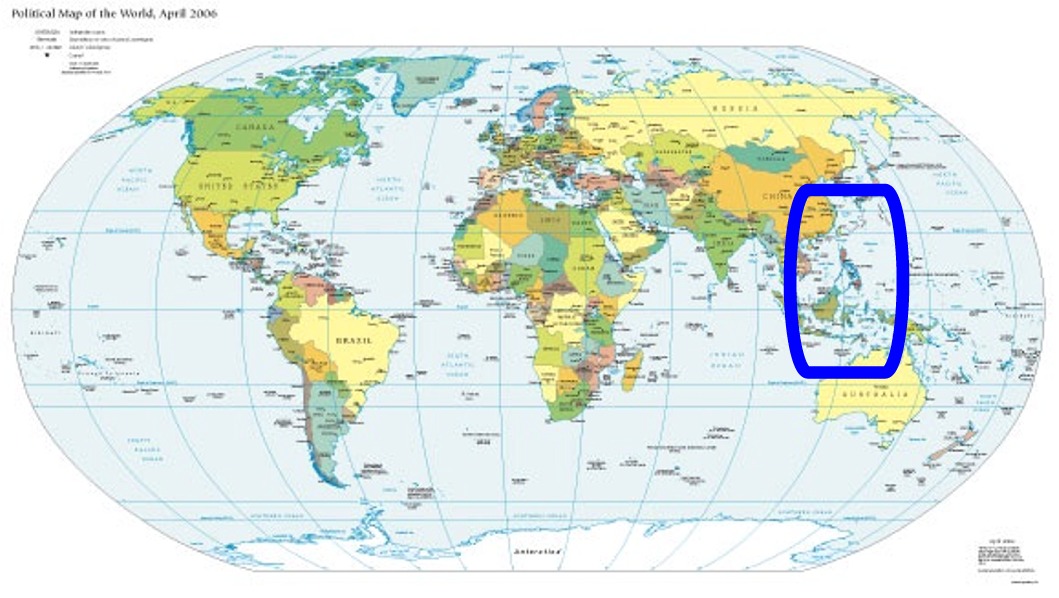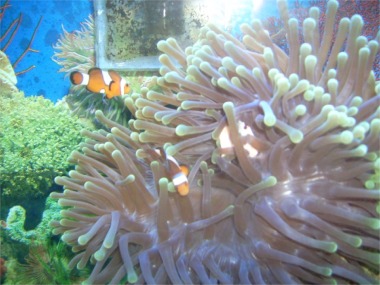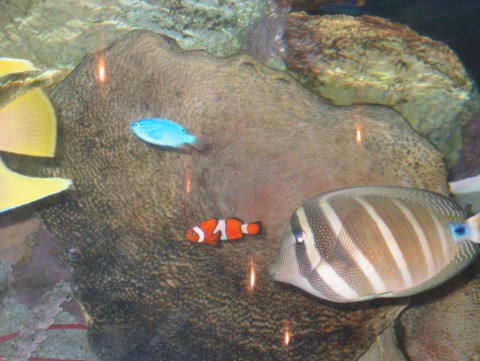|
|
|
|
Amphiprion ocellaris
are found in the Indo-West Pacific area. This area includes the Indian
Ocean, the Red Sea, South East Asia, northern Australia and Western
Pacific regions. Normally, the clownfish is found in shallow water reefs
or sand ranging in depths from 1 to 18 meters. They survive best at
temperatures ranging from 24°C to 32°C and a pH higher than 6.34. This
makes the region around southeastern Asia and northwestern Australia
an optimal location to live for the clownfish. A. ocellaris are
always found living among the sea anemones Hereractis magnifica and
Stichodactyla gigantean. These sea anemones are large,
strongly stinging anemones that provide protection and food for the
clownfish. In return, the clownfish clean the anemone and protect it
from predators. Since both species benefit from this association,
their relationship
can be considered a mutualistic relationship.
For more information, see
Interactions. |
|
|
Region where Amphiprion
ocellaris can be found in nature. |
|
|
A.
ocellaris
rarely migrate between hosts, thus their distribution is limited by the
availability of finding a host anemone to live in. Even if an anemone
host
is found, survival is still uncertain due to competition within
the anemone. Often times, the searching clownfish is chased away
or killed by residing residents within the host. Thus, a clownfish chooses its
host based on the availability of space within the anemone, the
accessibility of food, the risk of predation and the presence of a
nesting site. It is rare to see an unoccupied anemone.
|
Clownfish swimming near
|
|
|
In addition to living in a mutualistic relationship with a host anemone, Amphiprion ocellaris live in harmony with Periclimenes holthuisi (Anemone Shrimp) that also inhabit some anemones. Amphiprion ocellaris are rarely found in nature with other species, however. This seclusion changes in aquariums, however, where they can live with any other saltwater fish, such as those pictured to the left. (See also Interactions). |
|
|
|


